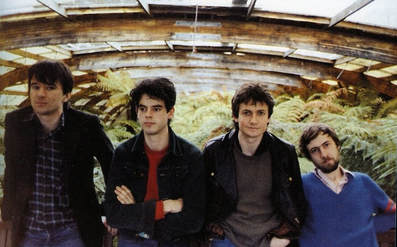 Sneaky Feelings, 1986 Sneaky Feelings, 1986 I N T E R V I E W Matthew Bannister of Sneaky Feelings by Ian Duggan Formed in Dunedin in 1980, ‘Sneaky Feelings’ was among the first wave of bands on the Flying Nun label. Almost 30 years since their last album, the band are set to release a new album, ‘Progress Junction’. We caught up with now Hamilton-based guitarist and vocalist Matthew Bannister for a quick Q&A, to discuss their motivation for getting back together, their aspirations for the band, lyrics inspirations, and releasing the new album back on their old label. HUP: Sneaky Feelings split up in 1989, and have played together only a couple of times since. What has been the motivation for the band getting back together after all this time? Bannister: We played together again in 1992, 1995 and 2007. We didn’t have David [Pine] in 2007, however. David had been overseas, came back to settle in New Zealand, and was keen to make an album. John had built his own home studio where we could record it. They’re both in Christchurch. HUP: A lot of time has passed since 1989. What should we expect sound-wise from the new Sneaky Feelings material? Have you gone back to old influences and will pick up where you left off, or should we expect a stylistically different band? Bannister: It’s a more equal split of song-writing now. There’s more Martin [Durrant] and John [Kelcher]. David’s learned a few more chords. It’s still basically the same though. We’ve got Nick Braae playing some keys for us live to fill out the sound a bit. HUP: The new album, ‘Progress Junction’, features yourself, David Pine, Martin Durrant and John Kelcher, which is the classic ‘83-‘87 Sneaky Feelings line-up. How have you managed to come together to record your new album together? Bannister: We’ve been getting together in Christchurch a couple of times a year for the last couple of years. We recorded the album over a couple of visits, took basic tracks away and did some overdubs on computer. David and John mixed most of the tracks, but I mixed mine in Hamilton with Jason Long at Wintec. HUP: What does the title refer to?
Bannister: ‘Progress Junction’ is John’s song. It’s a place near where he grew up – it was a gold mine. The song is about the environment; kind of a relevant topic right now. HUP: What are your aspirations for the band and album from here? Is this a one-off, or should we expect more in the future? Bannister: Make an album, do a few gigs. Put ourselves back on the map, and see what happens. HUP: The lyrics of number of your old Sneaky Feelings songs seemingly came out of your relationship struggles. Your life is now seemingly different, being in a long term-relationship with Alice Bulmer. Should we expect that this change in lifestyle is going to lead to a completely different array of lyrics? Bannister: My lyrics are all fiction, folks! Not a word of truth in them. Not to be taken literally anyway. I have a song on the new album about retirement homes, ‘Castle of Dreams’. Very rock and roll. HUP: Your 1999 book ‘Positively George Street’ started with the story of Sneaky Feelings missing out on inclusion on Flying Nun’s 1991s ‘Getting Older’ 10 year retrospective. Roger Shepherd’s recent book ‘In Love with These Times’ was seemingly conciliatory, offering a fair amount of space discussing the importance of Sneaky Feelings to Flying Nun, and addressing points made in your book. I also note that Progress Junction is to be released on Flying Nun. Has that relationship been smoothed over now, and how has it worked out that the new album would be released by Flying Nun? Bannister: Briefly, yes, we’re all buddies now. David talked to Flying Nun and everything was cool. Age mellows the mind… HUP: Sneaky Feelings are playing Nivara Lounge on 30 August. Is this an exclusive show, or are you touring the release? Bannister: Playing Nivara, Hamilton 30 August and Galatos, Auckland September 1. We hope to do more gigs before the end of the year.
0 Comments
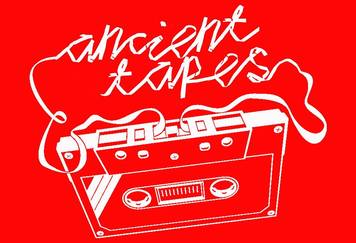 Bands and Brands: How to Logo by Ian Duggan Think back to many of the big music artists from the past – AC/DC, Metallica, Kiss and Motörhead, The Rolling Stones, The Sex Pistols and The Ramones, Wu-Tang Clan and Run DMC – and you can probably picture the logos many of them use. You see them on their albums and adorning the t-shirts of their fans. While band logos seemingly are not so common now as they used to be, a number of bands still do have them, including a few from Hamilton (or related). I talked to Andrew Carter of Deathnir, Gareth Schott of Ancient Tapes, Tim Fowler from Ghosts of Electricity and Julian White from The Scones, four bands with branding, about their logos; what is their purpose, what are the advantages of having one, and how did they go about getting one? 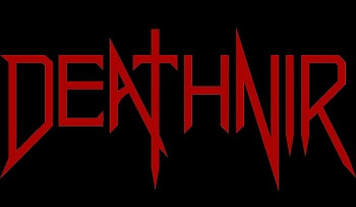 HUP: Andrew, being in a metal band, unlike the others, a logo seems to be a given. All metal bands seem to have one. Do you think that is a fair assessment? Andrew: I think when it comes to logos it is fair to say most metal bands have one, at least bands with credibility or experience. Metal bands like to stand out so these days it is common to have intricate and even complex designs. I don’t know if it’s as important to other genres of music but in metal it is pretty much essential. 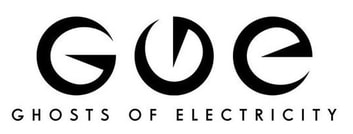 HUP: Do you think there are any advantages in having a logo? Tim: I think the biggest advantage is just as a time saver. Once you've got one, that's the last time you need to talk about it. I've always been pretty keen on trying to minimise the amount of time I spend doing the non-music aspects of being in a band. Andrew: There are definitely advantages to having a logo. The first is obviously to make your band name stand out on a poster. For instance, look at all the ‘big’ bands on festival posters as opposed to the smaller ones. Big bands tend to have a logo whereas smaller bands are sometimes compiled as a list in basic font. Half the time you don’t even read the font, you just look at the logos. Another advantage is to communicate the kind of music you play. If it’s a twisted, detailed, demonic looking logo, then it’s probably black metal. If it’s bold, basic and colourful then it could be reggae. If it’s Times New Roman nobody has a clue except by what the band is called. Julian: I think there are advantages, in affording instant recognition to those in the know. I find it hard to think of many at the moment, but the really great ones like The Rolling Stones, Dead Kennedys and Ramones are iconic in their own right, regardless of what you think of the music. 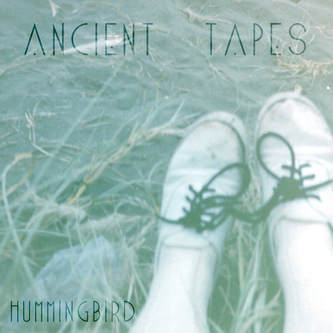 Hummingbird cover, with early Ancient Tapes logo Hummingbird cover, with early Ancient Tapes logo HUP: Gareth, I notice that Ancient Tapes have been through a few logos, rather than sticking with one. What were the motivations behind getting and using a logo? Does it matter if you chop and change, or do you see advantages in having consistency? Gareth: I don't think we deliberately set out to have, or create a brand. There was no board meeting as such, but the visual side of things are important to me personally. To advertise gigs and events, you need strong imagery. We don't desire to have images of us out there. So, I guess our logo and associated images are the next best thing. I think of how bold the band name of RIDE is on all their records and as a backdrop to their live shows. Simple font, but nevertheless classic. Same with Blur and Oasis to some extent. They have been consistent, whereas I have loved the way The Cure have changed the way the band name is represented. They have definitely turned their band name into an art form. Julian: To be honest, I'm not sure a single logo is essential. It does have the potential to limit creativity if you feel you have to. I quite like what They Might Be Giants do, which is to have all sorts of different ways of representing their name, and different emblems. Tim: I think I just wanted consistent branding across anything we'd be putting our names on, like CDs, posters, etc. Just for easier recognition. I also remember having conversations about what font we should use on posters. I can't stand conversations about fonts, so I figured if we had a logo, we didn't have to do that anymore. 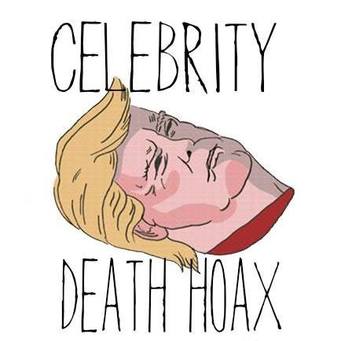 HUP: Gareth, with Celebrity Death Hoax (in contrast to Ancient Tapes), you had a consistent logo with respect to the font, but changed the images associated with them. I assume those were your designs also? Gareth: CDH was all me, yes. I sort of liked the visual potential of that band name. Almost like Gorillaz, where the artwork is equal to the music. HUP: What was the inspiration behind your designs? Who did the designs? Andrew: Our logo wasn’t really inspired by anything except that we didn’t want to look like a death metal or black metal band — with crazy fonts you can barely read. We wanted something more basic but pointy like Metallica or Megadeth. Basically, we wanted something original that looked cool but was still practical. That’s about it. Our logo was designed back in 2013 when we first started. It was something we knew we wanted from the beginning, and two of our members at the time had experience in graphic design, so we made it ourselves. I worked with the drummer at the time to form the basic final concept. We produced at least ten options that were all vastly different. When we were happy our other member took the design and made it in full HD which became our current logo. Tim: I can't remember exactly how I came up with it. I think I just doodled stuff until I came up with something I liked. I found out later a shop on Ponsonby Rd uses the same concept of circle-ish letters spelled out with the same shape, but I can't remember what they are called or what they sell, which kind of expresses the power of a logo. I came up with the concept of the logo but I'm pretty crap at drawing. I think I got a graphic designer to do it. 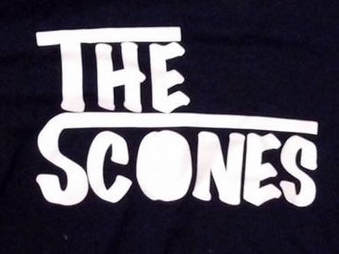 Gareth: Initially our first font was selected for us by Louise Hutt, who also did the Hummingbird EP cover, but since we've reformed I have done most of the band stuff; HUP posters, tape and t-shirt design. We found that our initial one was too thin, plus we wanted to signify a change in direction and new era (personnel), so I moved it on from what we started with, which was classic shoegaze dreamy imagery. Julian: It was when we were still a three piece. I had t-shirts printed off for each of us with a photo of a scone (which I had baked myself). They were the only ones ever printed to date. They weren’t particularly popular with the other band members, or anyone else for that matter. We were going to play a gig, and [drummer] Mike [Paterson] thought it would be good to have something to sell, and a t-shirt is good as it is so visible and portable. So, he came up with what might be considered the logo, which is simply our name in a bespoke (I think) font, a long upper limb on the S and the O in the shape of a scone. I don’t know that it was considered at the time to be something that would have much longevity apart from being on the t-shirts. Of course, it has now also appeared on our first EP, pens and one prototype mug… 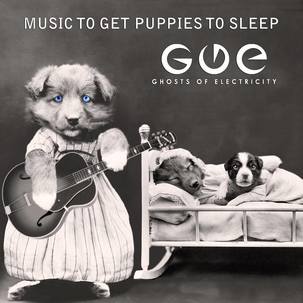 I N T E R V I E W Ghosts of Electricity; Music to get Puppies to Sleep by Ian Duggan Ex-Hamilton band Ghosts of Electricity recently released their latest album, 'Music to get Puppies to Sleep'. We caught up with front-person Tim Fowler, to talk about the new album, its seemingly less-PC content matter than their previous album, and where the band is at in 2017. HUP: The album has songs that primarily fit into two extremes in style, ranging from lush crafted pop songs to those that are more sparse and spoken word. What has driven the change of style from that of your previous album Trolls, which was primarily ‘punk’, and how has the new album come to have such contrasting styles within it? Tim: I think there's a whole lot of reasons for this. We liked Trolls, but I guess none of us saw the point in trying to remake it. Previously 90% of our songs came from jams; this time almost all of the songs were written at home. Because of this I think we had a lot more time to think about things. There's a lot more odd meter songs on this album, and we tended to use scales and modes we wouldn't normally use. I have developed an irrational love for the v chord in mixolydian mode after hours spent alone, for example. After we had a collection of demos, it just so happened we liked the spoken word stuff and the poppy stuff best, and as we liked it, we exaggerated it even more. Annie Clark is one of my all time faves, and one of the things I love about her writing is that she can make a bloody complicated piece sound like a pop song, then she'll get halfway through and put an insane barely tonal fuzz solo over the top of beautifully produced pop. I really love the concept of trying to make things both easier and more difficult to listen to at the same time. We tried to do that by making the musical pieces sound more musical, and then if we decided a section or instrument didn't need to be so musical (usually the vocals), we'd try to think about it more as an aesthetic feature than a musical one. It's not everyone's cup of tea, but then nothing ever is. HUP: In another departure, Trolls seemed pretty ‘politically correct’ lyrically, while on this album you have songs like ‘Young MILFs In Your Area’ and ‘Tits out for the Boys’. Talk me through this! Tim: It's funny, I think "Tits out for the boys" is PC as fuck. Essentially that song was written after reading Tony Veitch's "apology" article in the paper, and reading the letter to Brock Turner written by his victim. It made me think a lot about what young males know, what they talk about when they're drinking, what they aspire to be, what they do, what they would do. For the song I wanted to re-frame the chant "tits out for the boys" to make it sound awkward and pitiful, which it mostly is anyway. The lyrics in the verse ended up a bit intentionally vague partly because I think men need to listen more on this topic, so it wouldn't be helpful to anyone to have me try to do some finger pointing. I don't think men trying to control conversations about rape culture really answers anything. Also, as a joke to myself, that song uses the same chord sequence as "Wrecking Ball". I just really wanted to write a song about masculinity that musically quoted the most inappropriate source I could think of. HUP: The album and cover art have been finished for several months. Why have you chosen to until now to release it?
Tim: It just gave us time to make videos really. We like to set a release date after we've recorded so we've got a specific target to get things ready by, but we set this date before we know what we are going to do about videos, so we set it fairly conservatively to give ourselves enough time. HUP: You use a lot of keyboards and samples on this album. How will you perform live? Are you going to tour to support the album, and importantly, will you be playing in Hamilton? Tim: Really good questions, none of which I can give an exact answer to. In the past we've always had one or two bits of a song that we couldn't reasonably play live, and we've had to tweak it a bit to make it workable. Some of this album is a whole other level of challenge though. I think on "A trip to homeworld stadium", the first part has 4 rhythm guitars playing different parts, plus bass, vocals, djembe, glockenspiel, melodica and piano. We can re-write things to a degree to make it more playable, but it starts to be a pretty heavy re-write if we change too much. When / if we play these live, we may not be able to reproduce some of it with the number of humans who we can convince to join us on stage, so something has to give. Having said that, we can play a re-arranged version of most of the material with the usual 3 piece, so I think that's the most likely option, beyond that it'd be great to have a keyboardist or another guitarist for live shows. We'd likely be practicing in Hamilton if anyone's keen. If we play live again, I think Hamilton is the most likely venue. HUP: I understand you have now left Auckland, and you have lost your bass player? What, if anything, does this mean for the future of Ghosts of Electricity? Tim: I'm in Rotorua now, Pete [Beazley]'s in the Netherlands, Patrick [Girard]'s still in Auckland. We're still making new music together. I think we've got about 25 minutes of new music in demo form that I'm pretty happy with. We just record things on laptops and send them around to each other. I've got a baby on the way as well, which I suspect will slow things down a fair bit. Hard to say what we're doing live, but we've got at least another album in us I reckon. Albums are a bit easier with distance than live shows. 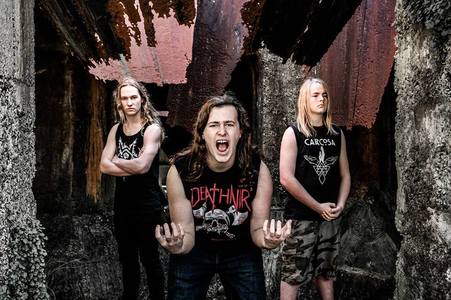 I N T E R V I E W Alien Weaponry by Ian Duggan Thrash metal band Alien Weaponry hit Mount Maunganui on Saturday as part of their ‘Trembling Earth Tour’, on the back of their latest single and brand new video ‘Rū Ana Te Whenua’— a song inspired by a tupuna of two of the members who fought at Pukehinahina (Gate Pa). Hamilton will have to wait until September. The band have a number of Hamilton connections, including the father of two members, and band manager, being the front-man for ‘80s new wave band ‘Ebony Sye’, who were based in Hamilton for a time, while their latest video was made by ex-Hamiltonian Greg Page. We talked to the band about their cultural awareness, influences, Deathnir t-shirts and what they think about their father’s music! HUP: I find your band fascinating, as you go against so many expectations people might have of a metal band. As well as your latest song, you have released ‘Urutaa’, about cultural misunderstandings, and ‘Raupatu’, about Māori land confiscations. Do you feel your songs might actually act to educate a lot of New Zealand metal fans about these cultural and social issues? Alien Weaponry: Yeah, well it seems they already have. We didn't really set out to educate, we were just writing about stuff we knew from our history. It kind of grew from there. HUP: You guys are so culturally aware for people so young. What themes should we expect you to tackle next? Alien Weaponry: We used to have to listen to our dad go on about stuff in history, especially when we were driving anywhere. He would be like, "guess what happened here"? But as we got older we realised how awesome our own history is. [Guitarist/vocalist] Lewis [de Jong] was really into the Vikings TV series a while back and he was like, "Maori history is as brutal and interesting as the Vikings; even more maybe". (continued below) HUP: Who are your biggest influences musically, and are there politically aware bands that have inspired you?
Alien Weaponry: We listened to all sorts of things growing up, but I suppose bands like Rage Against the Machine probably shaped the stuff we like to write about. Also Public Enemy, Metallica, even New Zealand bands like Subtract, Cripple Mr Onion and non-metal like Che Fu. Lewis is a big Lamb of God and System of a Down fan and [bass player] Ethan [Trembath] is crazy into Trivium. We have all been listening to Twelve Foot Ninja lately. Gojira are pretty good too. HUP: I notice in a lot of your photos at least one of you will be wearing a t-shirt featuring locals ‘Deathnir’, which I think is a fantastic promo opportunity for them. Are you guy’s fans of their music? Alien Weaponry: We always wear other New Zealand band merch on stage. It started when Paul Martin sent us some New Zealand band merch after we opened for Devilskin in 2014. Among the merch was a ‘Leave The Dead’ shirt that Ethan always used to wear on stage. He grew out of it and we were like "let's ask bands we play with to merch swap". Yeah, we have played with Deathnir a bit and they are cool guys. We wear the merch of bands we gig with and who are great dudes. New Zealand metal represent \m/ HUP: You are based in Northland, but you have a Hamilton connection through Lewis and Henry’s father (and band manager) Niel de Jong, who was in ‘80s new wave band Ebony Sye (who were based here for a time). Ebony Sye’s style was quite different from Alien Weaponry! What do you think of your father’s music? Alien Weaponry: Hahaha, yeah dad played in several bands in the ‘80s and ‘90s. Some of it hard rockish and some not so much, like Ebony Sye. It's pretty funny for us to hear dad sing. Now we are touring we realise just how many venues he used to play at when he was in bands. It’s a crack up. We started playing music 'cause dad had his Marshall and guitars sitting around in the lounge as kids and we got into jamming early. He is our live sound tech now. He used to work in recording studios as an engineer, so it's all good. HUP: What are the plans for the bands future? Alien Weaponry: We want to get our album finished and out and our ultimate plan is to be touring the big European festivals like Wacken in Germany. |
Archives
July 2022
Categories |
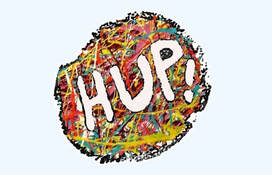
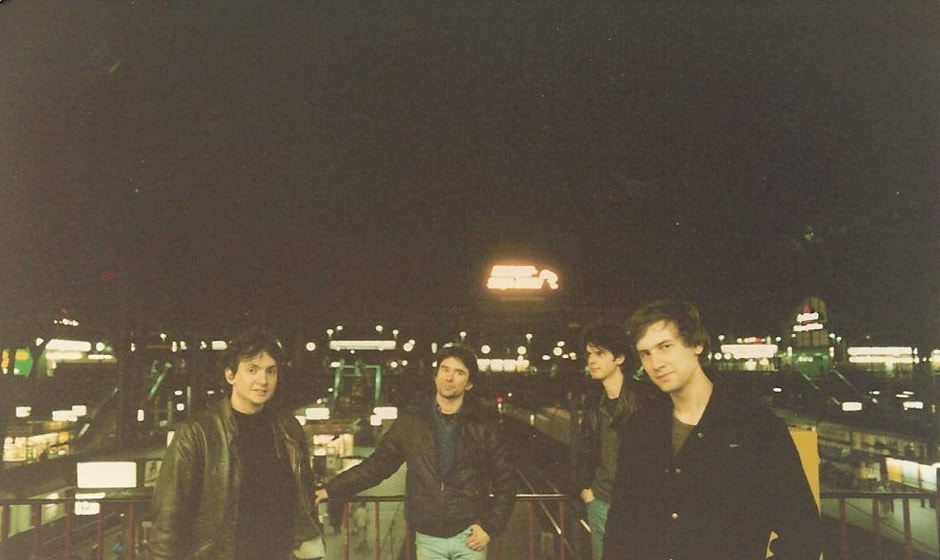
 RSS Feed
RSS Feed
